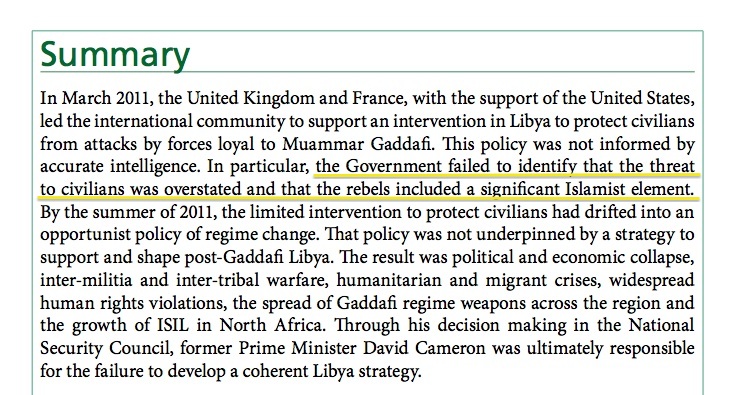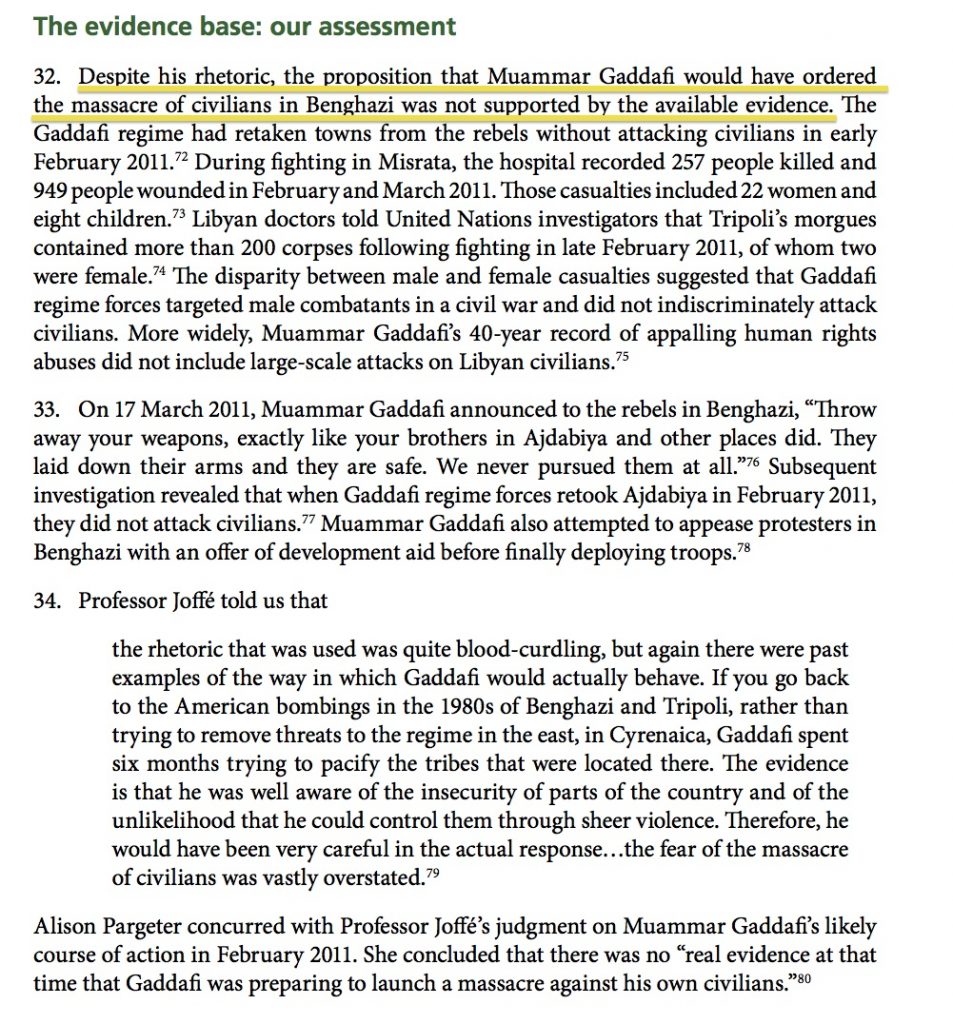Hillary Clinton has been dogged since May 2014 by the House Select Committee examining her responsibility for the killings of four U.S. diplomatic personnel in Benghazi in September 2012. But the work she did actively pushing for the Obama administration to support NATO’s March 2011 military attack on Libya resulted in exponentially more human harm and suffering than the incident of September 2012 (and, in many ways, paved the way for it.) But Sen. Clinton remains unapologetic– even proud– of the role she played in pushing for the 2011 military attack on Libya.
As yet, she has shown no willingness to step back and reflect on that role– and nor, crucially, has she been called to account for her early 2011 position on Libya by any significant segment of the U.S. political elite.
The situation is very different in the United Kingdom. There, coming hard on the heels of the Chilcott Inquiry that looked into the mistakes PM Tony Blair had made as he supported the 2003 invasion of Iraq, the House of Commons Foreign Affairs Committee earlier this month released a hard-hitting report (PDF of text here) looking at the government’s decisionmaking behind the 2011 military attack (“intervention”) in Libya and the social/political collapse that followed it.
The report’s conclusions are damning:
Of course, this report will cause little political damage to Mr. Cameron, who left Parliament completely in the wake of the failure of the Brexit vote. But we here in the United States can learn a lot by looking at the thorough way in which the House of Commons committee (which was dominated by members of Mr. Cameron’s own party) did its work. We could hope that, one day, a Congressional committee here might be equally diligent in interrogating the role of the various decisionmakers who decided to support the ill-fated and terribly harmful NATO military attack on Libya.
And we could also look at some of the lessons the British parliamentary investigators learned about how London got jerked so easily, on the basis of unsubstantiated and seriously overblown fears about an impending humanitarian “catastrophe” in– yes– Benghazi, into participating in a war of choice whose destructive power continues to roil Libya and its region now, even five years later.
These latter lessons could surely be used to give U.S. policy toward Syria a much firmer basis in reality– especially given that the bloody-shirt-waving propaganda machines of the anti-Asad “Contra” fighters there have found ready and sympathetic amplification in nearly all the U.S. corporate media.
And so it was with the claims of the anti-Qadhafi forces, five and a half years ago. Remember how the Western mainstream media were all awash in claims that if NATO did not “intervene” (i.e. launch a war of choice against Libya), then 10,000 or more people in Benghazi would surely be slaughtered by Qadhafi’s loyalists?
The House of Commons Committee took evidence from two specialists on Libyan and Middle East affairs, Prof. George Joffe of King’s college, London, and Alison Pargeter of the Royal United Services Institution (RUSI). Here’s what the Committee wrote about that:
The whole of the House of Commons Committee report is well worth reading. But let us start to use some of this same careful investigation of precedents, and this same wariness about the possibility that the claims of anti-government activists might well be exaggerated (and indeed, verifiably often have been), in our consideration of what to do in Syria. And these lessons, by the way, are ones that need to be learned by members of the mainstream media and other members of the political elite here in the United States, as well as by our political leaders.


